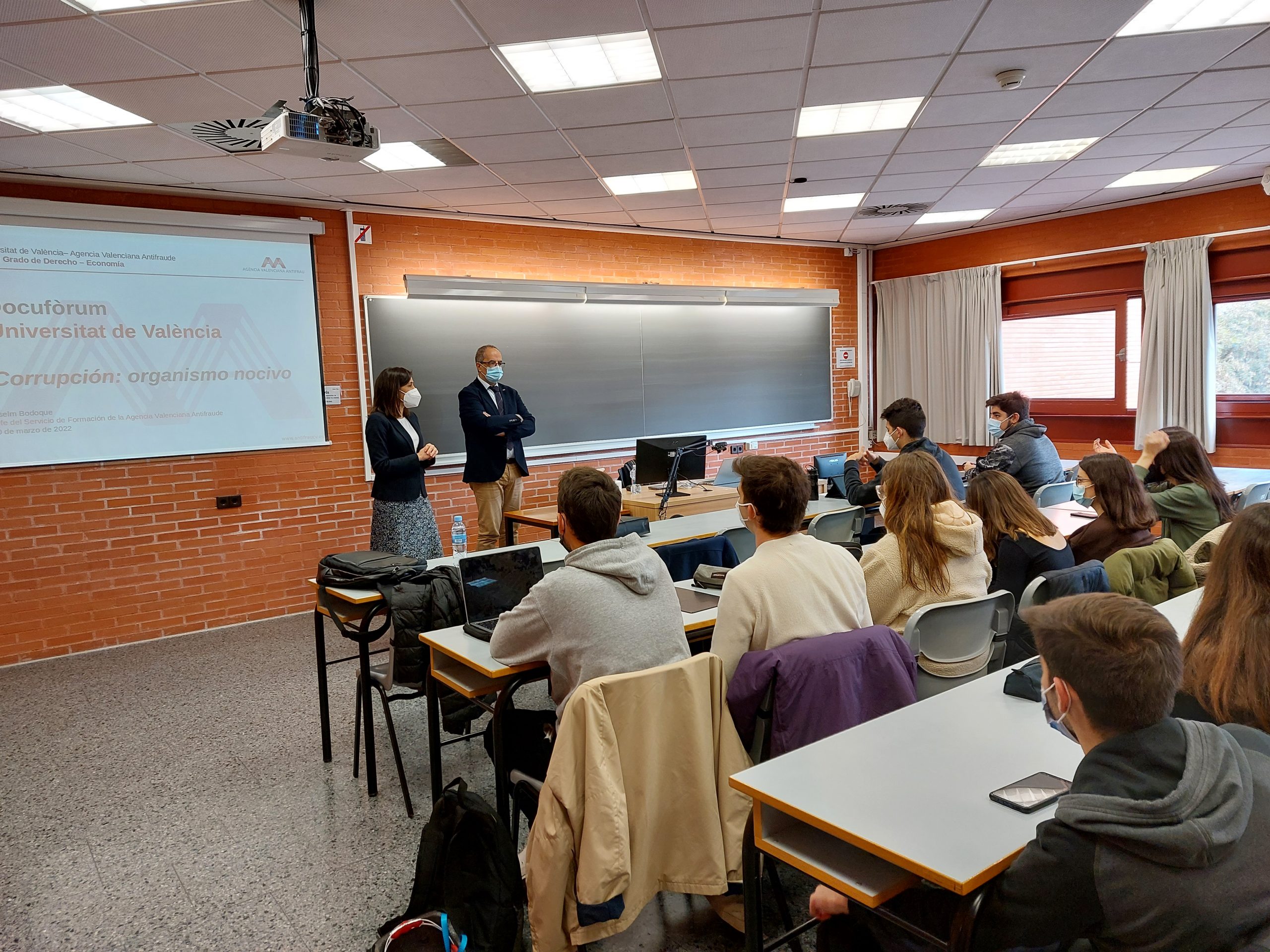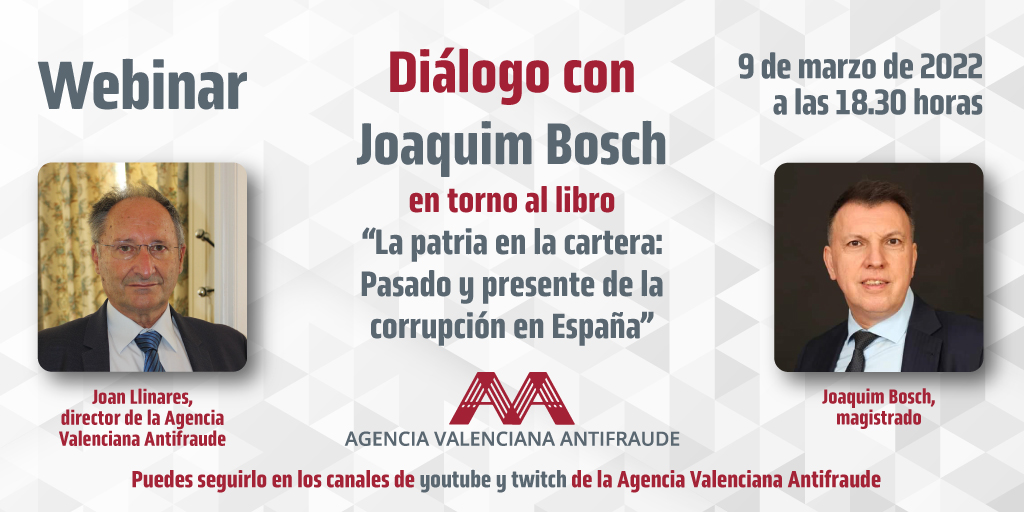#TrainingAVAF
The first docufòrum of the term was held at Valencian universities, this time with students from the double Degree in Law and Economics at the University of Valencia.
The AVAF develops training actions to offer knowledge and civic awareness, especially to future professionals, and foster a culture of prevention and fight against any conduct that encourages corruption.
On this occasion, the activity took place at the Faculty of Law of the University of Valencia with first-year students of the double degree in Law and Economics, with the attendance of 42 students and the participation of the teacher of the subject of Constitutional Organization of the State , Rosario Serra, and the head of the Agency’s Training Service, Anselm Bodoque.
After watching the documentary “Corruption: Harmful Organism”, the students star in the training experience with their questions, focused on the origin and causes of corruption, the effect and collective costs it generates (economic, institutional quality and public morality) , the perception of corruption in our society and with respect to other countries around us, what to do in cases of corruption. In the same debate, it is used to talk about ethics and integrity, as well as prevention and civic education. And of the functions and work of the Valencian Antifraud Agency, above all, and given the profile of the double degree, on the issues of the different costs of corruption and the regulatory development both from Europe and in the Valencian Community.
The debate with the students allows students to reflect on the ethical limits and risks of corruption. The students were also interested in the recovery of assets and the protection of whistleblowers.
These activities are organized in collaboration with the University of Valencia, which we thank for its interest and willingness to help create a culture of public integrity and rejection of fraud and corruption.
If you are a university, secondary or high school teacher and you are interested in having the training activity “Docufòrum: Corruption, harmful organism” carried out in your subject, do not hesitate to contact the Training Service of the Valencian Anti-Fraud Agency through from formacio@antifraucv.es.
.








